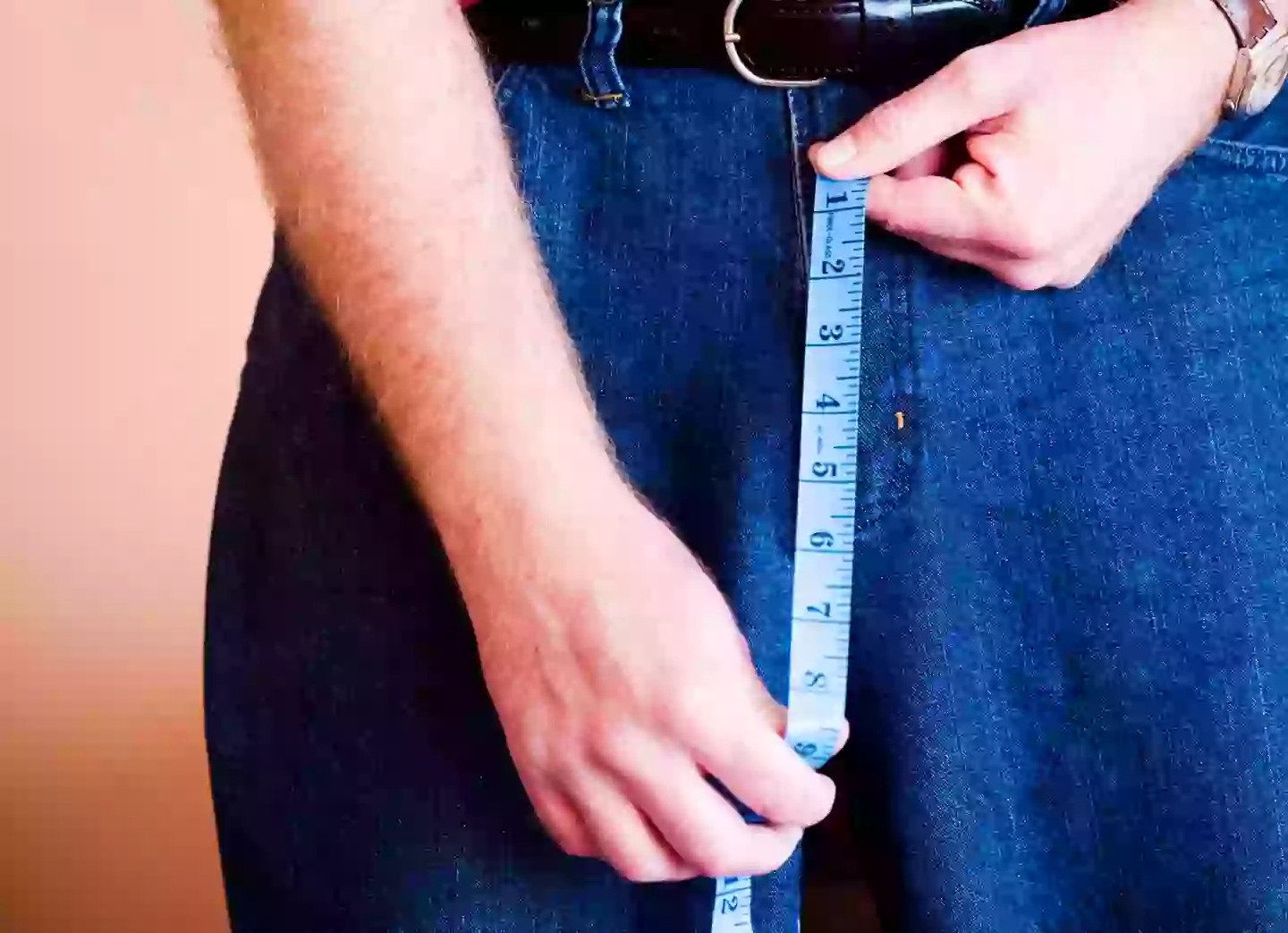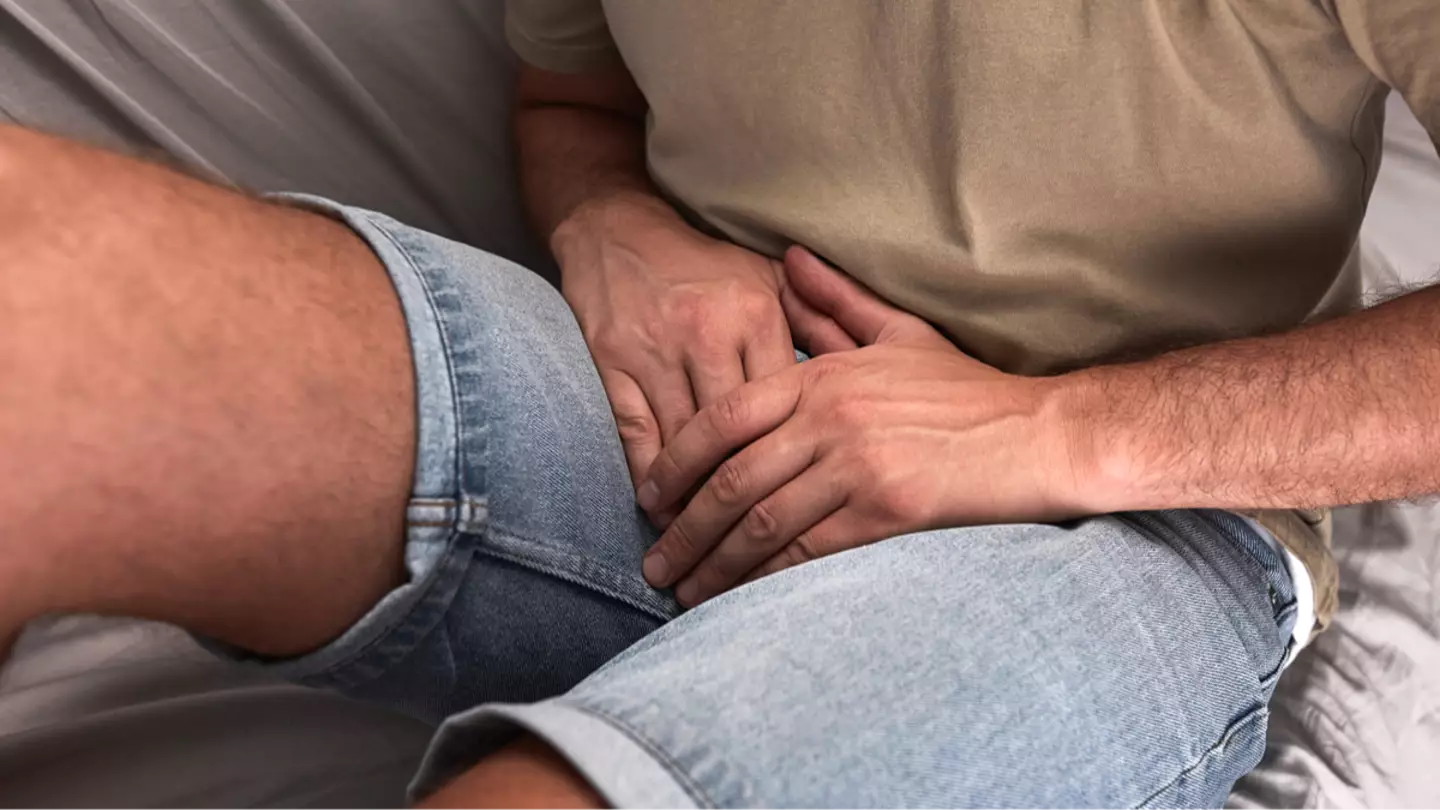We are often told of the side effects of masturbating too much, but research has also looked at how removing the ‘me time’ can impact the body.
Sex and relationship expert Dr Tara Suwinyattichaiporn has previously explained there can be negative results for both men and women if they go too long without some form of sexual stimulation.
Masturbation and sex puts a great deal of focus on affection, touch and sexual connection, and without this, a person could experience anxiety, depression and increased levels of stress, according to the expert in conversation with the Daily Mail.
On top of that, quitting masturbation can lead to frustration that may lead to an increase in aggressive behavior, Dr Suwinyattichaiporn added.
A 2021 study also came to the conclusion that sexual frustration could lead to an increase in ‘the risks of aggression, violence, and crime associated with relief-seeking, power-seeking, revenge-seeking, and displaced frustration.’

Experts have spoken out about the effects that come from a lack of masturbation (Getty Stock Photo)
Meanwhile, there is evidence that men who have an inactive sex life, whether that be self-pleasure or with a partner, have a higher likelihood in getting prostate cancer.
A 2016 study in journal European Urology found men who ejaculated at least 21 times each month had a lower risk of developing prostate cancer than those who ejaculated just four to seven times a month.
The connection between a sex drought and prostate cancer lies in the sperm as researchers believe that carcinogens build up in the prostate over time.
This is said to increase the risk of cancer, though studies have found that ejaculating regularly may prevent cancer because it flushes out the harmful chemicals in the semen, according to the Urology Care Foundation.
For women, they can develop vaginal atrophy, which is when the tissues become thin and dry and, in some cases, shortens the vaginal canal.
As for another impact affecting men, Tobias Kohler, and assistant professor of urology at Southern Illinois University School of Medicine, told WebMD that without regular erections, the penis will become less elastic, leading to shirking.
“If [men] don’t do anything to maintain normal erections, they will get shortening of the penis,” he said.

Research has looked into how stopping masturbating can impact the body (Getty Stock Photo)
A previous study has found that the sex hormone level in men increases by more than 100 percent on the seventh day of abstinence, which involved 28 men in China back in 2002.
The authors explained: “The purpose of this study was to determine the changes in sex hormone level in men after ejaculation. The serum testosterone concentrations of 28 male volunteers were investigated daily during abstinence period after ejaculation.
“We found that fluctuations of testosterone levels from day 2 to day 5 of abstinence were minimal. On day 7 of abstinence, a peak of serum testosterone appeared, reaching 145.7% of the baseline (P<0.01). After the peak, no regular fluctuation was observed.
“Ejaculation was the premise and beginning of the 7 days’ periodic phenomenon. If there was no ejaculation, there was no periodical changes in serum testosterone level. These results indicate that the periodic change in serum testosterone level is caused by ejaculation.”


Absence makes the heart grow fonder, but does abstinence make your balls grow stronger? It depend’s who you ask, but one expert has weighed into the debate.
There are countless conflicting stories on social media with people claiming that ‘blue balls’ are dangerous, while others believe semen retention boasts numerous benefits.
Now, expert in the matter Geoffrey Whittaker has touched on the topic, while writing a blog for hims, with licensed physician Dr Mike Bohl having reviewed what he has wrote – meaning it holds authority.
So, let’s get into it.
What the study into male ejaculation revealed
A study has found that the sex hormone level in men increases by more than 100 percent on the seventh day of abstinence, although just 28 men participated in the 2002 paper conducted in China.


Does retaining your semen actually serve health benefits? (Getty stock)
The authors explained: “The purpose of this study was to determine the changes in sex hormone level in men after ejaculation. The serum testosterone concentrations of 28 male volunteers were investigated daily during abstinence period after ejaculation.
“We found that fluctuations of testosterone levels from day 2 to day 5 of abstinence were minimal. On day 7 of abstinence, a peak of serum testosterone appeared, reaching 145.7% of the baseline (P<0.01). After the peak, no regular fluctuation was observed.
“Ejaculation was the premise and beginning of the 7 days’ periodic phenomenon. If there was no ejaculation, there was no periodical changes in serum testosterone level. These results indicate that the periodic change in serum testosterone level is caused by ejaculation.”
So, if you make it a week without nutting, your serum testosterone levels will be much higher.
What are the benefits to your serum testosterone levels being higher?


Could you go a week without knocking one out? (Getty stock)
While there’s no large-scale conclusive evidence that semen retention is good for you, one small-scale study found that of the 11 participants eligible, those who abstained for eight days saw their ‘sperm numbers and semen volume increased with duration of abstinence’.
Abstaining from ejaculating also could possibly improve your mood.
In another paper, titled ‘Revisiting the role of testosterone: Are we missing something?’, researchers found that abstaining from busting one out actually increases how you look at yourself, your energy and your mood.
After a week your testosterone levels are believed to increase, and testosterone contributes greatly to your mental health.
The other thing expert Whittaker advised was that individuals could see a bonus benefit if they were ejaculating too much, claiming getting jiggy with yourself too often can lead to friction burn.
The more you know

Young people between the ages of 18 and 30 are having less sex, but experts have explained what impact this can have on the body for men and women.
Sex and relationship expert Dr Tara Suwinyattichaiporn spoke to the Daily Mail and said there can be negative results for both men and women if they go too long without sex, or at least some stimulation.
While you might assume everyone around you is having plenty of sex, this may not actually be the case for Gen Z.
A 2021 California University study found that 38 percent of young people between the ages of 18 and 30 reported that they hadn’t had any sexual partners in the previous year.
So, what kind of impact can no sex and masturbation have on a person?
Mental Health Issues
There has always been pressure in society around the importance of sex, I mean that is how we get babies that kind of carry on the species…
But even beyond that, when it comes to having sex for reasons other than baby-making, not having it can have detrimental impacts on a person’s mental health.


There can be both physical and mental issues with a lack of sex(Getty Stock Image)
Sex for many people puts a great deal of focus on affection, touch and sexual connection, and without this, a person can experience anxiety, depression and increased levels of stress according to Dr Suwinyattichaiporn.
Aggressive Behavior
As well as the above – in both men and women – not having an available partner or engaging in unsatisfying sexual activities can lead to heightened irritability and mood swings.
A 2021 study in the Science Direct journal found that people with unmet sexual needs can develop frustration that may lead to an increase in aggressive behavior.
The study also said sexual frustration may lead to an increase in ‘the risks of aggression, violence, and crime associated with relief-seeking, power-seeking, revenge-seeking, and displaced frustration.’
Physical Health Issues
Thankfully, the physical impacts on your body from not having sex or masturbation, are not exactly as dire as the age-old adage of ‘use it or lose it’ – but there can still be some cause for concern.
The extreme symptoms that can arise include penile and vaginal atrophy and or pain during sex, however, this is likely to take upwards of five years without sex to occur.
Penile atrophy, or penis shrinkage, is when the skin and underlying tissue of the penis stiffen and become less flexible. If this occurs, it can cause the penis to become shorter or lose girth.
This can happen due to infrequent erections but can also be caused by lifestyle choices.


The physical impacts of not having sex for both men and women might surprise you (Getty Stock Image)
On a more serious note, there is evidence to suggest – in men – that an inactive sex life can increase the likelihood in getting prostate cancer.
A 2016 study in journal European Urology found men who ejaculated at least 21 times each month had a lower risk of developing prostate cancer than those who ejaculated just four to seven times a month.
For women, they can develop vaginal atrophy which is when the tissues become thin and dry and, in some cases, shortens the vaginal canal.
This can make penetration more difficult during intercourse and cause pain or discomfort during sex.
What can you do to help yourself?
Sex therapist Sari Cooper also spoke to the Daily Mail and said it is important to find ways to destress, as people who are stressed struggle to notice if ‘someone piques our neurotic nerve endings.’ Essentially aren’t as focused or clued up on whether someone is getting your blood flowing.
Suwinyattichaiporn added that ‘stressed out people don’t have the capacity to enjoy sex’.


Experts have said it is important to address your lack of sex whether single or otherwise (Getty Stock Image)
When it comes to de-stressing, popular methods include yoga, exercise and other toxin-releasing activities.
Cooper also suggested people should focus on what has previously triggered their ‘erotic desires’, and these things aren’t always physical. For example, sometimes it’s something you hear, smell or taste.
For couples, the sex therapist suggested that they should consider speaking to a certified sex therapist to help them ‘address these barriers with professional guidance.’


A sex and relationships expert has explained exactly what happens to your body when you stop having sex.
I think we have a pretty good idea of how we feel during a ‘dry spell’, particularly for those who are sexually active.
But what happens when that dry spell actually begins to impact your body?
Well, Christine Rafe – a sex and relationships expert for Womanizer – has explained the science behind it.


What happens to your body when you stop having sex has been explained. (Getty Stock Photo)
What happens to the body when you stop having sex?
While it may feel like your body is changing going through a dry patch, the actual science behind it suggests not much is changing at all.
Rafe explained: “While there are recognized physical, emotional and psychological benefits to engaging in solo or partnered sexual activity (including outercourse or non-penetrative sex), this does not mean that there are negative consequences associated with not being sexually active.”
However, experts have explained how our body does go through a process known as ‘deconditioning’ during a time when sex is not on the cards.


Not much is changing despite how it might feel. (Getty stock photo)
This basically means becoming less primed for intercourse.
Rafe explained: “In the same way we might experience a reduced confidence, muscle tightness and overall deconditioning from not exercising, people who haven’t had sex, or who stop having sex for prolonged periods may experience deconditioning to sexual activities and find that they have muscle tightness or soreness, difficulties in ejaculatory control and a loss of confidence in sexual activity.”
The sex and relationships expert did make it clear that ‘these are not long-term biological changes’.
The benefits of sex
We’ve long been told the benefits of having a sexually active lifestyle, and Rafe has certainly backed up those claims.
However, there is no health downsides to not having sex either.
“There is no substantive research or evidence concluding that there are negative health impacts for someone who chooses to not have sex, or to stop having sex,” Rafe explained.


There are benefits to having sex though. (Getty Stock Photo)
The benefits you ask, though?
Well, the expert explained that when it comes to hormones, ‘the chemicals released during sexual pleasure, whether solo or with others, include oxytocin, endorphins, serotonin and dopamine’.
She added: “These are our happy/feel-good chemicals, and they can improve mood and energy levels [and] increase motivation.”
On top of that, we’ve heard all about the benefits of sex reducing stress, which can therefore impact mood and the immune system.


You may already know what happens to your lungs when you puff away on your cigarette but what about your brain?
A ‘devastating’ study has revealed just how many minutes one cigarette can take off your life, but if that wasn’t enough to sway you, perhaps knowing the effect smoking can have on the brain may help you stop inhaling nicotine and tar once and for all.
Animated Biomedical created a ‘3D representation of the effect smoking and nicotine have on your body and brain’ and shared the simulation to YouTube.
“It takes around 10 seconds for the nicotine to reach your brain. This surge of nicotine is so satisfying that you immediately feel better.
“Over time, your body gets used to the good feelings from nicotine and you can’t do without it. This means you’re addicted.
“You feel good when your nicotine levels are high and bad when they’re low. This up and down effect goes on all day which is why it can be difficult to give up.”
Indeed, Healthline adds nicotine ‘activates dopamine signals, creating a pleasurable sensation’ and you can end up developing a ‘tolerance’.
And it’s not taken long for people to weigh in.
One YouTube user commented: “Thank God. I stop smoking cigarette two month know.”
“I have never smoked and I refuse to try it,” another said, while a third divulged their own personal experience, writing: “Please never touch one, my personal experience I bought a pac of cigarettes out of curiosity and decided to smoke 1 cigarette a day, after smoking just one cigarette for a couple of days I started have this strong craving to smoke another, it turned to two a day, when that pack cigarette was over I wanted to get another and a another soon I was smoking 3 a day and kept craving more, I developed an addiction so finally one day I decided to stop, it was the worst experience ever the withdrawal symptoms was so bad I wasn’t able to sleep although I was so tired and exhausted
“[…] It was one of the worst experiences of my life. It was absolute hell for almost two months.”
Healthline further explains you can ‘experience a variety of side effects including anxiety, irritability, and a strong craving for nicotine’ due to smoking having changed your brain and made you develop a dependence on nicotine.
However, talking to your doctor, trying nicotine replacement therapies, getting counseling support, learning relaxation techniques and focusing on exercise, time with family, hobbies and sleep can all help you on the path to quitting for good.
Featured Image Credit: AnimatedBiomedical via YouTube



